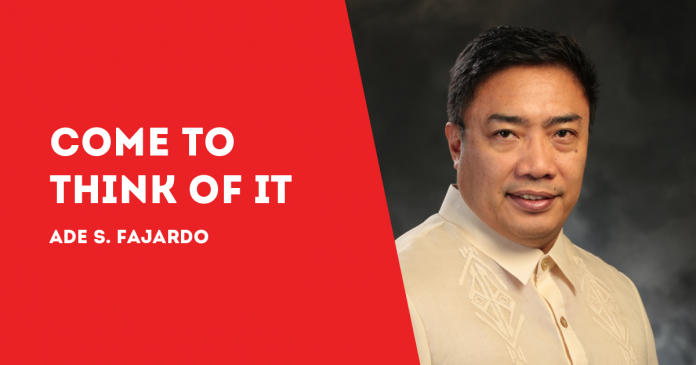
LAST June 19, President Rodrigo Duterte accepted the credentials of the new foreign diplomats in the Philippines. New ambassadors from Canada, Iran, Palestine, Vietman, and New Zealand presented their credentials to the President through a teleconference call.
According to Malacañang, this marks the first time President Duterte hosted a virtual presentation of credentials as part of the “new normal” brought about by the COVID-19 pandemic.
Presentation of credentials is a required ceremony before the Philippine government may recognize an ambassador as the official representative of his country. It is normally an elaborate affair of pomp and ritual befitting eons of tradition in the diplomatic community.
As it reportedly happened, President Duterte was inside Malacañang while the ambassadors were kilometers away in a hotel in Manila. Wearing a mask by his lonesome, he watched from the computer screen as the ambassadors individually presented their “letters of credence,” while flanked by Foreign Affairs Secretary Teodoro Locsin Jr. and another functionary from the DFA.
This does not inspire much confidence even as the country is re-opening its injured economy after more than three months of extreme lockdown measures.
Government appears to be deathly afraid to expose the President to the virus. This perhaps helps explain the difficulty in coming out with live Monday public appearances that accompany his written reports to Congress.
In fact, save for those weekly appearances, the President has shielded himself from the prying eyes of the media, and provides direction amid the crisis through a task force composed largely of retired military officers.
This is in stark contrast to what other populist leaders are doing, like Donald Trump who continues to directly address the media and pursues every opportunity to mingle with his supporters in political rallies. One may be cagey and the other a fool, but visible leadership is necessary in this uphill battle against an invisible enemy.
Dr. Tony Leachon’s recent sacking as special adviser to the COVID task force demonstrates certain points. He proved expendable after he publicly offered views that caused alarm among us who are anxious for life to return to normal.
Dr. Leachon told Rappler that “without a clear, cohesive and transparent communication campaign from our local leaders, the noise from our overly stressed out and highly emotional general public, interspersed with the varied mixture of political opinions and innuendoes, and even potentially misleading facts, will sadly just drown out the truth.”
What is more telling, however, is when he effectively admitted that he himself has been unable to break through the wall blocking information flowing to the topmost decision maker – the President.
Dr. Leachon gave a diagnosis, i.e., that the President “is clueless about the entire environment, wala siyang environmental scan kasi hindi siya nakakalabas ngayon because of the risk of the COVID because vulnerable siya.”
He added that, “the cordon sanitaire will affect the information and the decision-making process of the President. The President will only depend kung ano ibibigay sa kaniya.”
Former Health secretary Jeanette Garin claims that she knows Leachon’s tendency to air to the media his opinions instead of holding discussions with other experts. But this does not address Leachon’s assertion that his position of influence notwithstanding, his voice is as muted as anyone else’s, unheard from the barricaded command station of the presidency.
Is the President’s alleged vulnerability to the virus now inhibiting his own access to facts and opinion that can factor in his decisions in these critical times?
We understand that lawyer Dino de Leon’s petition seeking disclosure of the President’s medical records did not even reach second base in the Supreme Court.
Presidential immunity from suit, although not express in the Constitution, was reaffirmed when on that basis the Supreme Court dismissed Sen. Leila de Lima’s complaint asking that President Duterte be compelled, among others, to disclose the name of the foreign country that according to him helped him listen in on her private life and alleged private affairs.
Because it has not published a full decision on the matter, we can only surmise that the Supreme Court dismissed the de Leon petition on a similar basis.
But absent such a suit, can the President not adopt the same spirit of transparency that his predecessors adhered to even if he does not agree that the conditions are present for the application of constitutional provision that the public be informed of the President’s state of health in case of serious illness?
Word is rife that a Philippine conglomerate will soon cut hundreds of jobs. With the economy seriously on the downturn we need to know the man on top is making decisions unimpaired by the dizzying effects of seclusion./PN


